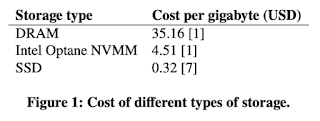The Everything Store: Jeff Bezos and the Age of Amazon (Brad Stone 2013)
This book tells the story of Amazon's first 20 years from 1994 to 2014. It is a long book, but I found it very engaging. In comparison, I had not that much enjoyed the GooglePlex book from Steven Levy (an author I adore). A caveat though... In 2014, MacKenzie Scott (then Bezos), a writer herself, had given the book a 1-star Amazon review due to inaccuracies, crossing the line of nonfiction to fiction in terms of character development, and failing to provide a balanced narrative. Well, as usual, here are some of my highlights from the book. D. E. Shaw Bezos was in his midtwenties at the time, five foot eight inches tall, already balding and with the pasty, rumpled appearance of a committed workaholic. He had spent five years on Wall Street and impressed seemingly everyone he encountered with his keen intellect and boundless determination. Upon graduating from Princeton in 1986, Bezos worked for a pair of Columbia professors at a company called Fitel that wa...




